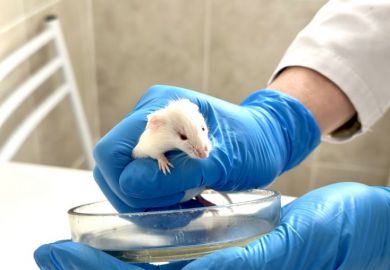In 1983, a 76-year-old woman named Carrie Buck died in a nursing home in Pennsylvania. Back in 1927, she had the dubious distinction of being the first inmate of a mental institution to be lawfully and involuntarily sterilised in the US, even though the practice had been sanctioned in Indiana as early as 1907. Carrie’s mother, Emma, had been classified as “feeble-minded” by the state of Virginia and sent to a mental institution to live out her days. Carrie had been fostered, then raped, and fallen pregnant. After she gave birth to her daughter, Vivian, the foster family, to save face, had the same judge send Carrie to her mother’s institution in 1924 on the pretext of “like mother like daughter”. A chain of politically motivated events eventually resulted in Carrie’s sterilisation three years later. Vague statements that the child Vivian was “not quite normal” had sealed Carrie’s fate during the eugenics hysteria that had gripped the US barely 20 years after the rediscovery of Mendel’s laws of genetics.
With Europe’s huddled masses banging down the door of the land of opportunity, the American establishment was terrified that highly fertile immigrants with their deemed inferior characteristics, physical and mental, would pollute the superior (white, Anglo-Saxon, Protestant) American gene pool. Carrie was therefore a victim of the genetic determinism that had been peddled by the press and had been swallowed hook, line and sinker by the medical community. Yet by all accounts, Carrie and Vivian had both been normal, bright children at school. Carrie left the mental home in 1930 and went out to work, but sadly, Vivian died of enterocolitis aged eight. Carrie’s story was to be repeated tens of thousands of times in the first half of the 20th century in the US, and, in the case of Native American women, as late as the 1970s. It was a view of human populations carrying inferior genes that would warp, in Europe, into something more terrible still – the Nazis’ “final solution”.
Against this backdrop, Siddhartha Mukherjee, a cancer geneticist and physician whose own family has a legacy of mental illness, takes us on an epic 150-year, 500-plus page journey of genetic discovery. From the lonely Czech monk Gregor Mendel, working in his pea garden in Brno, through to Charles Darwin, James Watson and Francis Crick and the other major figures in this story, he describes their discoveries and their triumphs, their insecurities and their disappointments. He introduces us to the entrepreneur Robert Swanson, who first commercialised these molecular advances and founded Genentech, and to the victims, including Carrie, and Jesse Gelsinger, an 18-year-old volunteer who died in a disastrous gene therapy clinical trial in Pennsylvania in 1999.
Mukherjee describes the development of medical genetics, and then takes us to the precipice with the new gene editing technology that can correct mutations that cause disease and has the potential to alter the course of human evolution. Will we choose to alter genes for intelligence, sexuality or good looks as well as devastating genetic diseases such as Huntington’s? The slippery slope is laid out before us, just as it has been so many times before – with the difference that now it is within our grasp. Will we dare to take the next step? Mukherjee’s excellent and authoritative account of the history of the gene is dedicated to two women born in 1906, Carrie, and the author’s grandmother, who first noticed and accepted the emerging schizophrenia in her sons. Nice touch.
Charalambos P. Kyriacou is professor of behavioural genetics, University of Leicester. He studies the molecular genetics of biological rhythms in fruit flies, crustacea and mammals.
The Gene: An Intimate History
By Siddhartha Mukherjee
Bodley Head, 608pp, £25.00
ISBN 9781847922632
Published 2 June 2016
POSTSCRIPT:
Print headline: Rights, wrongs and the key of life
Register to continue
Why register?
- Registration is free and only takes a moment
- Once registered, you can read 3 articles a month
- Sign up for our newsletter
Subscribe
Or subscribe for unlimited access to:
- Unlimited access to news, views, insights & reviews
- Digital editions
- Digital access to THE’s university and college rankings analysis
Already registered or a current subscriber?





